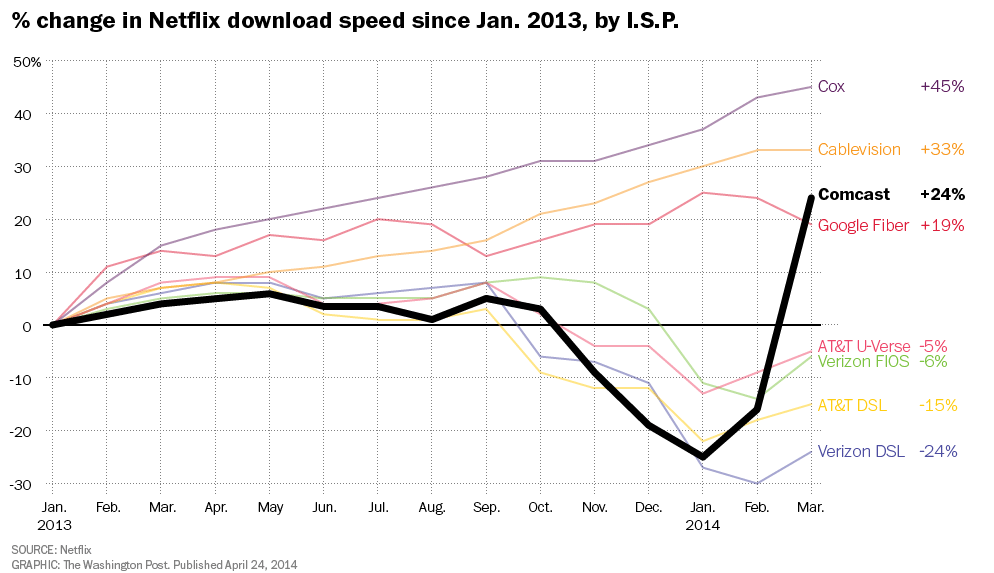If you want to know more about why netflix speeds over comcast improved so drastically starting in January you'll have to read this article
http://www.wired.com/2014/05/fcc-proves-yet-again-that-its-out-to-kill-net-neutrality/

http://www.wired.com/2014/05/fcc-proves-yet-again-that-its-out-to-kill-net-neutrality/










